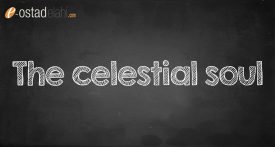892
Vote
What is it in me that says “I”? What is the nature of that consciousness of my self? What is my spirit made of? How am I psychologically constructed? We can ask this question in so many different ways, replace one term by another, we will always return to the same enigma: what is it in me that produces the feeling of existing, but also rules my behaviour, my thoughts and my emotions? What is this thing, which we could call the self, that enables me to think, to decide, to feel; that keeps all my experiences and gives me the innermost feeling of being myself, of having my own identity?
This lecture explores The model of the self according to Bahram Elahi as compared to the models put forward by neurosciences or Freud’s psychoanalytic model.
Read more
348
Vote
Virtue ethics can be defined as an ethical approach that emphasises the character of the agent. Whereas consequentialism emphasises the consequences of the action, and deontological ethics the rules that one may follow, virtue ethics define a virtuous act by a certain virtue in the agent, for example benevolence or generosity. Virtue ethics is not in conflict with deontological or consequentialist approaches, and can even be reconciled with them. The action driven by virtue ethics actually precedes the other two approaches: while deontological ethics or consequentialism addresses what is to be done in any given situation, virtue ethics focuses on the ways to develop certain virtues, or character patterns, in order to act well when needed. The main problem for virtue ethics, then, is 1) to define which virtues are desirable, and 2) how to develop them.
Read more
126
Vote
In brief: in Ostad Elahi’s model of the self, the human soul results from the combination of two parts of different origin: the celestial soul and the terrestrial soul. Our celestial soul is the part of our soul that constitutes our core identity. It is the source of all the faculties—such as reason—that are specifically […]
Read more

 News
News Podcast
Podcast






Recent Comments